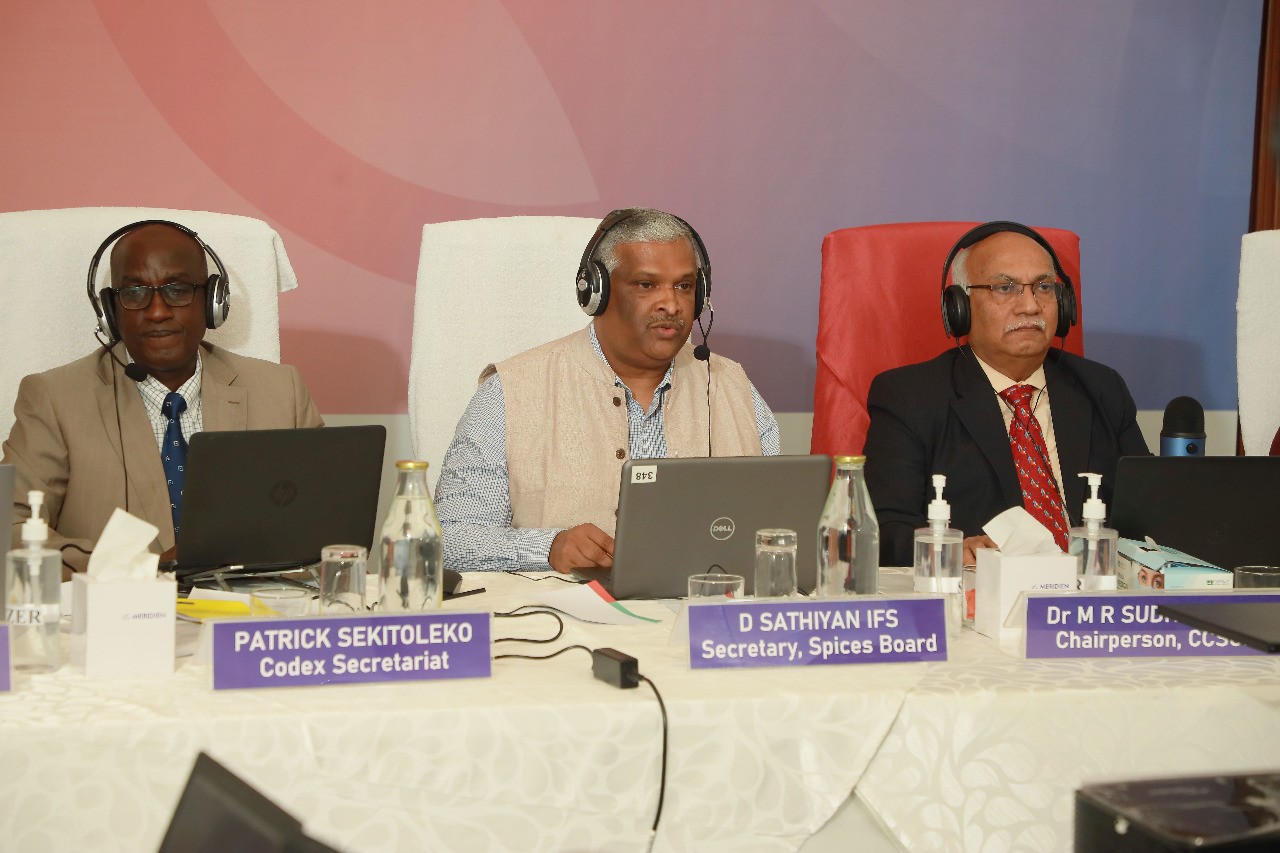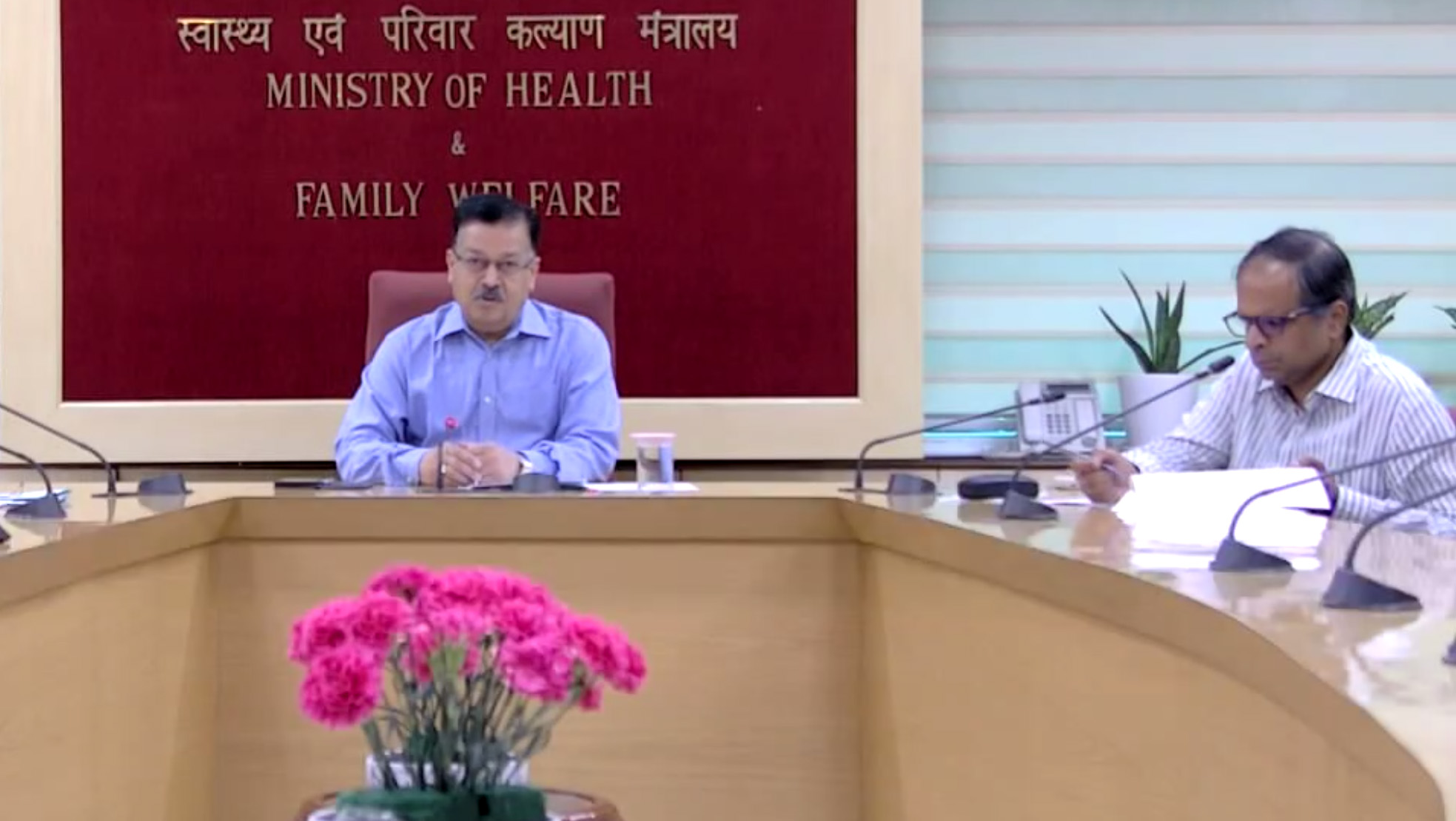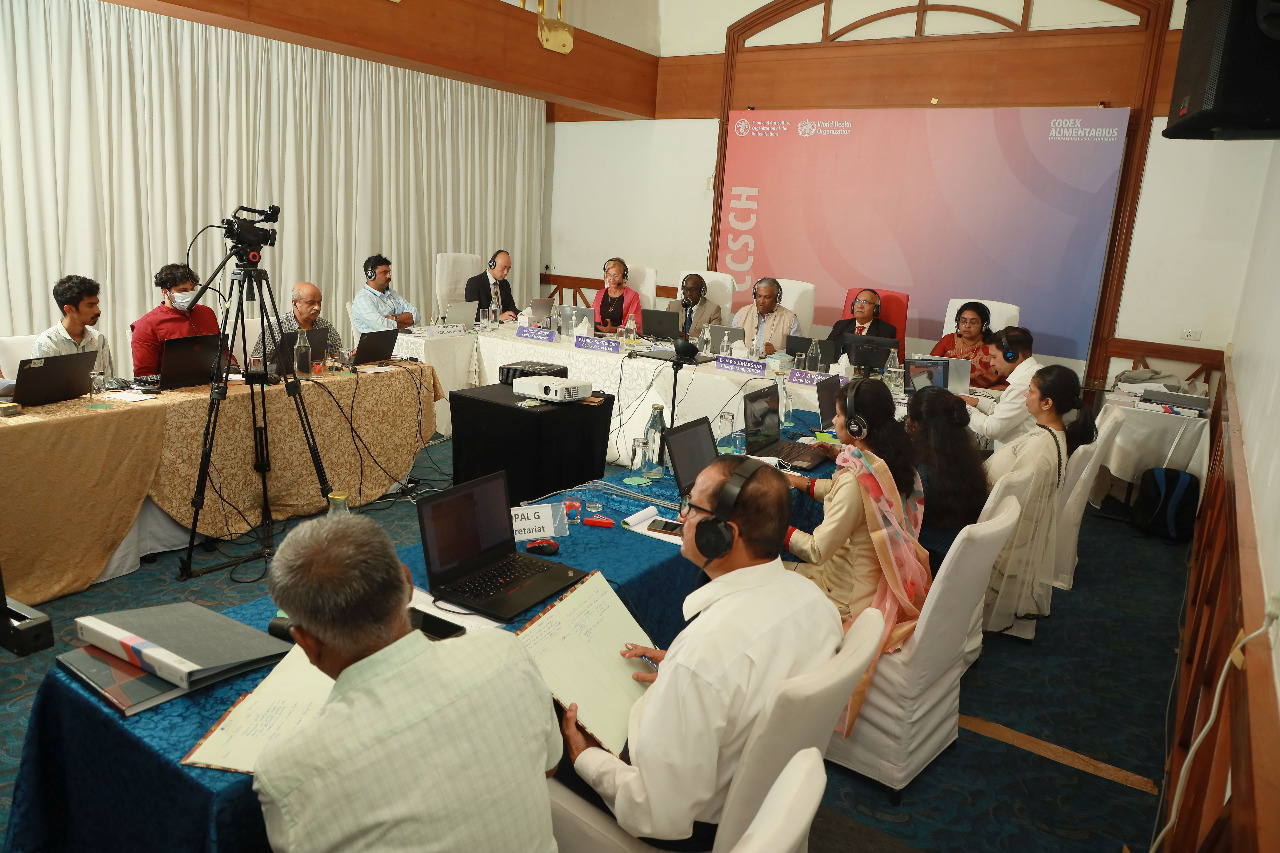Codex Committee on Spices and Culinary Herbs / a trigger for change for industry and consumers
The sixth session of the Codex Committee on Spices and Culinary Herbs (CCSCH), hosted virtually by India, began on 26 September 2022. Chairperson Dr M.R. Sudharsan expressed confidence that the committee would work to cover all the items on its agenda and make valuable progress on the development of standards.
Mr D Sathiyan, Secretary of the Spices Board of India, welcomed over 230 online delegates on behalf of the Government of India to the online session and underlined how the numbers attending the meeting reflected “how much spices and culinary herbs have become entrenched in the life of people all over the world.” With six draft standards on the agenda as well as work on grouping standards, seen by the committee as a logical way forward — given the large numbers of spices and culinary herbs awaiting standardization — he looked forward to a fruitful session.

Mr D Sathiyan, Secretary of the Spices Board of India (centre)
The Chairperson of the Food Safety and Standards Authority of India, Mr. Rajesh Bhushan, said a culture of quality was pervading the spices sector and that the work of CCSCH had acted as a trigger leading to positive changes for industry and consumers. “This gathering must pave the way for further elaboration of worldwide standards for spices, to not only protect public health but also promote economic development globally,” he said.

Mr. Rajesh Bhushan, Chairperson of the Food Safety and Standards Authority of India (left)
Steve Wearne, United Kingdom, Chairperson of the Codex Alimentarius Commission, said that virtual meetings had allowed for greater levels of participation by members in discussions, despite the lack of valuable, informal face-to-face exchanges. The experience of the committee in its second consecutive virtual session would be relevant as Codex continues to adapt to different ways of working.

Members of the Spices Committee and Codex Secretariats together in Kochi, India for CCSCH6
Speaking on behalf of FAO in India, Mr Konda Reddy Chavva underlined FAO efforts globally to improve and harmonize standards, protecting producer and consumer interests. “The reference made to Codex food safety standards in the WTO’s SPS (Sanitary and Phytosanitary measures) Agreement means that Codex has far reaching implications for resolving trade disputes,” he said.
Learn more
Follow the work of the committee on the CCSCH6 meeting page.
At the heart of the Codex mandate are the core values of collaboration, inclusiveness, consensus building and transparency. Governmental and non-governmental, public and private organizations alike play a vital role in ensuring Codex texts are of the highest quality and based on sound science.
Codex would have little authority in the field of international standard setting if it did not welcome and acknowledge the valuable contributions made by observers. Expert technical bodies, industry and consumer associations
contribute to the standard-setting process in a spirit of openness, collaboration and transparency.
Intergovernmental organizations (IGOs) and international non-governmental organizations (NGOs) can apply for observer status in Codex in order to attend and put forward their views at every stage of the standard-setting process.
 Current Codex Alimentarius Commission
Current Codex Alimentarius Commission
Codex Committee on Spices and Culinary Herbs / a trigger for change for industry and consumers
The sixth session of the Codex Committee on Spices and Culinary Herbs (CCSCH), hosted virtually by India, began on 26 September 2022. Chairperson Dr M.R. Sudharsan expressed confidence that the committee would work to cover all the items on its agenda and make valuable progress on the development of standards.
Mr D Sathiyan, Secretary of the Spices Board of India, welcomed over 230 online delegates on behalf of the Government of India to the online session and underlined how the numbers attending the meeting reflected “how much spices and culinary herbs have become entrenched in the life of people all over the world.” With six draft standards on the agenda as well as work on grouping standards, seen by the committee as a logical way forward — given the large numbers of spices and culinary herbs awaiting standardization — he looked forward to a fruitful session.

Mr D Sathiyan, Secretary of the Spices Board of India (centre)
The Chairperson of the Food Safety and Standards Authority of India, Mr. Rajesh Bhushan, said a culture of quality was pervading the spices sector and that the work of CCSCH had acted as a trigger leading to positive changes for industry and consumers. “This gathering must pave the way for further elaboration of worldwide standards for spices, to not only protect public health but also promote economic development globally,” he said.

Mr. Rajesh Bhushan, Chairperson of the Food Safety and Standards Authority of India (left)
Steve Wearne, United Kingdom, Chairperson of the Codex Alimentarius Commission, said that virtual meetings had allowed for greater levels of participation by members in discussions, despite the lack of valuable, informal face-to-face exchanges. The experience of the committee in its second consecutive virtual session would be relevant as Codex continues to adapt to different ways of working.

Members of the Spices Committee and Codex Secretariats together in Kochi, India for CCSCH6
Speaking on behalf of FAO in India, Mr Konda Reddy Chavva underlined FAO efforts globally to improve and harmonize standards, protecting producer and consumer interests. “The reference made to Codex food safety standards in the WTO’s SPS (Sanitary and Phytosanitary measures) Agreement means that Codex has far reaching implications for resolving trade disputes,” he said.
Learn more
Follow the work of the committee on the CCSCH6 meeting page.
 Codex and Observer
Codex and Observer
around the world since ancient times.
We might not always know where it comes from,
but we expect it to be available, safe and of good quality.









Leave a comment